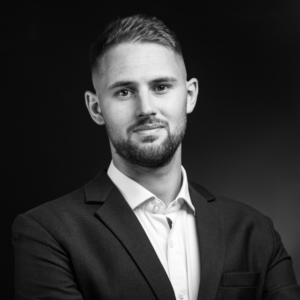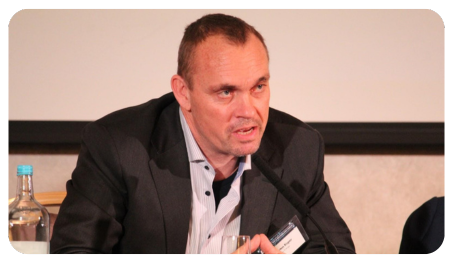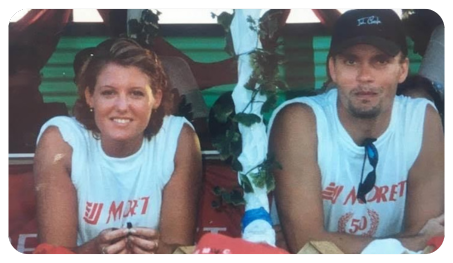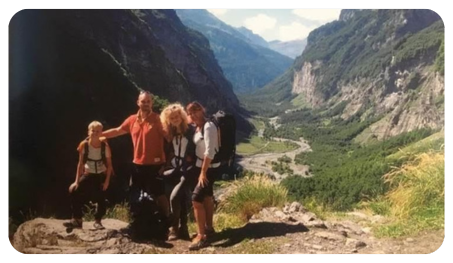Harvey John
Unit 2 Ferry Wharf
Hove Enterprise Centre
Basin Road North
Portslade, East Sussex
BN41 1BD
Earlier this year, I came into contact with Maarten following a tax technology event and I later found out he’d built an impressive international career, ticking off two locations that we rarely come across whilst recruiting tax professionals: Curaçao and Cyprus.
Coincidentally, when I spoke to Maarten a few weeks after the event, I received an email from a candidate in The Netherlands asking me to help him and his family move to Curaçao!
With the majority of our candidates seeking opportunities across the US, UK, BENELUX, or the Middle East, Maarten’s interview refreshingly explores the perks of going off the beaten track and then circles back to life in a more familiar expat location…
Maarten, it’s great to have you on board for this week’s series of The Tax Expat. Curaçao and Cyprus are two new expat locations to add to our growing list – so I’m very keen to hear about your experiences over the years. Firstly, can you introduce yourself to those readers who may not know you?
Thank you. My name is Maarten Koper and I’m currently the Global Head of Tax at Puma Energy – a global midstream and downstream energy company headquartered in Singapore and operating in around 50 jurisdictions worldwide.
After having spent around 20 years in international corporate tax consultancy working for E&Y in various locations, I joined Puma Energy in 2013 and was tasked to build, develop, and lead the group’s tax function.
Having worked across Curaçao and Cyprus, I’m now based in Geneva, Switzerland with my wife, Saskia, two children, two dogs, two cats, and too many cars!
So Maarten, your career as an ex-pat began when you relocated to the Dutch Caribbean island of Curaçao. How did this opportunity become available and what attracted you to Curaçao of all places?
The opportunity arose after I had expressed an interest in the tax practice of EY in the Netherlands at the time to be assigned abroad for a few years. There were a few locations which were of interest to me including (but not limited to) Curacao, the Netherlands Antilles (which was an independent country within the Kingdom of the Netherlands at the time).
My interest in Curacao was – inter alia – driven by the fact that my girlfriend at the time (now my wife and the mother of my two children) wanted to move out of the Netherlands to a location with nice(r) weather. However, EY could not indicate if and when such postings would become available and whether I’d even be considered for this.
After I had responded to an advert for a position as a Tax Manager in Curacao by one of EY’s competitors, had an interview and was made an offer I discussed this with my Manager indicating that I didn’t want to leave the organization and that I was struggling to accept the offer. Meanwhile, a Manager who was seconded to Curacao wanted to return back to the Netherlands earlier and so an opportunity within EY came up almost immediately and we left the Netherlands on the 1st of January 1999 with our two cats!
Certainly a change of climate and terrain for your cats! I must admit, Curaçao hasn’t been on my radar at all in my time as a recruiter but, oddly, it’s come up a couple of times in the last month. Why would a tax professional want to work in Curaçao?
Well, for starters, the Antillians are some of the most hospitable people in the world and the lifestyle on offer is a perfect blend of being able to work on interesting and challenging tax assignments with high-quality professionals whilst, at the same time, being able to enjoy the Caribbean beach life, party life, and beautiful nature.
I guess both those who are single or have families will enjoy it. In my experience, it’s a great place but you either absolutely loved Curacao (being a very small island) or hated it! And, if you went as a couple, you either came back with children or with another partner!
After more than 15 years, I’m still in touch with quite a few professionals who I worked with and all of them still feel connected with the Island one way or the other – that tells the story (I think) of why a tax professional should consider Curacao.
Being a Dutch island, I’d imagine that Dutch culture was woven into the fabric of life on the island. Did you experience any difference in the working culture in the Netherlands?
Not really – this is mainly because most firms on the island that are providing tax services employ Dutch professionals and the Curacao – tax DNA’ is very much aligned with the Dutch tax DNA.
Having said that, the way to cooperate with your (Antillian) colleagues is somewhat different. It’s way more personal and people have a genuine interest in taking care of each other, which I feel is unique to Curacao.
You left Curaçao in 2003, spent around a year back in Amsterdam, and then began your second ex-pat journey in Cyprus. What influenced your decision to move back to the Netherlands and then soon after relocating to Cyprus?
Having extended my stay in Curacao for another 1.5 years (due to the introduction of new taxation rules in the Netherlands Antilles at the time), one of the main motives for moving back to the Netherlands was to improve my chances of pursuing a truly international tax career. I had no clue at the time of what the future would hold but I was hopeful that opportunities would arise sooner or later. It wasn’t long after my return that I got in touch with Neophytos Neophytou (Head of Tax of EY Cyprus), who convinced my wife and me to continue my professional career in Cyprus.
That’s interesting because I don’t see many European tax professionals working in Cyprus. What’s the typical makeup of their ex-pat workforce?
Most of the ex-pats (non-tax) in Cyprus are from the UK, Germany, Norway, Russia, and some former Soviet Union states. But when it comes to the tax expat community in Cyprus, there’s a mix of mainly UK and Greek-trained tax professionals as well as some tax professionals from former Eastern Bloc countries like Hungary, Poland, and the Czech Republic. In general, though, there are very few foreign tax professionals in Cyprus.
Whilst Cyprus isn’t one of the main ex-pat hubs that people think about in Europe, what does it offer as an ex-pat destination?
Well as a starting point, fantastic weather and a very safe environment for you and your family to live in. The lifestyle on offer is an excellent mix of professional development whilst being in the perfect environment to unwind, relax, or party! And, of course, the Mediterranean food is fantastic.
But certainly, on the professional side, Cyprus offers involvement with cross-border tax structuring projects across a wide range of clients, whether that be regional or global MNCs, private equity houses, HNWs, or start-up entrepreneurs.
It certainly sounds like an opportunistic location for tax professionals who are looking for somewhere that’s off the ex-pat map! Your current residence, Switzerland, is quite the opposite with Geneva and Zurich consistently recognised as two of the top expat cities in the world. Has life in Switzerland been everything that it’s made out to be?
Yes, it is for sure. Almost everything works (and works on time) in Switzerland, whether that be public transportation or applying for permits & licenses, etc. All of this comes at a cost, however, but this is compensated for in the remuneration levels.
But a possible downside for ex-pats may be the Swiss’ general attitude and (lack of) appreciation of other cultures/foreigners. For example, you’re expected to comply with very strict local rules and regulations where there’s no tolerance or flexibility to deviate from them. One such example would be that PET plastic bottles cannot be thrown in the same trash can as general plastic bottles. Also, don’t even try to mow the lawn of your garden on Sunday!
Having travelled throughout your career, what are the career benefits of having international experience?
Certainly being able to understand and appreciate various points of view and perspectives when considering and judging complex tax situations – whether that be cultural or technical. This allows you to provide more value-added guidance and perceived ‘out-of-the-box thinking’ ideas and solutions for tax problems.
Three very different locations at different stages of your career. What’s been the biggest struggle in the whole process?
Most definitely explaining to our children that they needed to leave their friends and home behind, learn a new language, and go to a new school abroad. I wouldn’t recommend doing this too often.
What’s the most important thing you’ve learnt about yourself since moving abroad?
To be more appreciative of someone else’s point of view, culture, and (different) perspectives on life and society.
Hindsight can be a wonderful thing – if you had your time again, what would you have done differently?
Nothing really – I’ve always made conscious and (hopefully) well-balanced decisions, knowing the impact this would have on my family and me. There will always be uncertainties, challenges and surprises whether they be positive or negative.
What advice can you share with other tax professionals who are considering a relocation abroad for their career?
Focus on the opportunities that lie ahead and not on the possible downsides or uncertainties of relocating abroad – financially or otherwise. There are always more reasons to stay within your current comfort zone and social environment – especially for tax professionals who (by training or nature) tend to be risk averse.
Maarten, I have some quick-fire questions before I let you go!
- Favourite place to live? Depends on the phase of your life you’re in but, right now, Geneva
- Favourite place to work? I’ve never worked there but London sounds very appealing
- Best location to be with a family? Limassol, Cyprus
- The best location for career progression? Amsterdam
- Which country has the best food? Italy
- You can spend the rest of your career in any city around the world. Which one? Copenhagen, Denmark
Maarten, thank you very much for coming onto The Tax Expat and sharing your experiences!
Author

From boutiques to the Big 4, and start-ups to multinational corporations, Alex manages a diverse portfolio of clients worldwide which has enabled him to develop a vast global network of indirect tax and tax technology professionals in 40+ countries.






